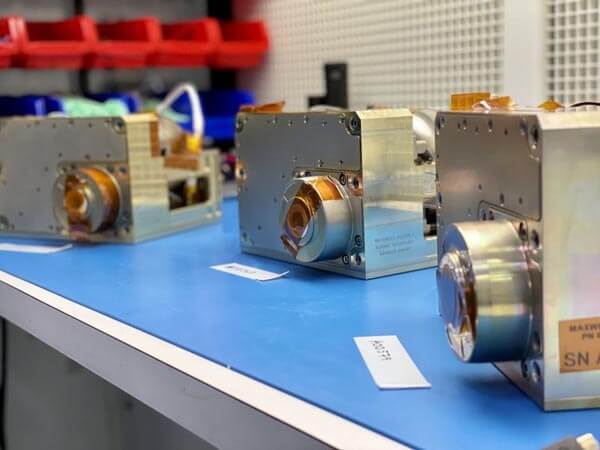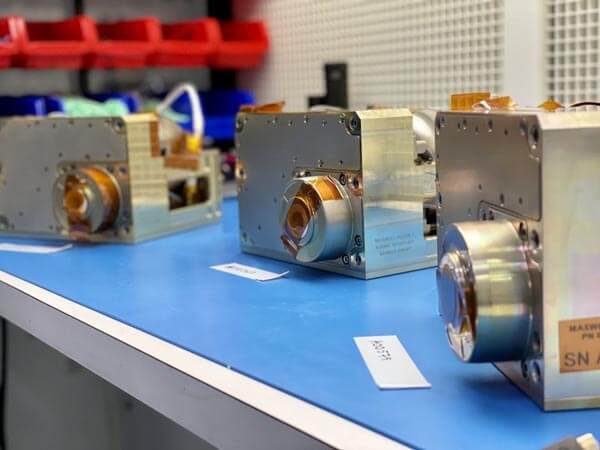
Phase Four Reveals Next Generation RF Thruster Performance (Image Credit: SNN)

EL SEGUNDO, Calif., Dec. 1, 2021 (Phase Four PR) — Phase Four, the creator of the radio-frequency thruster for satellite propulsion, announced today that its second generation thruster offers significant performance improvements over its first generation thruster. The new thruster, which will be at the core of the Maxwell Block 2 engine, has demonstrated more than 13 mN of thrust and over 700 s of specific impulse (Isp) at 500 Watts of input power. This represents an overall 85%+ performance improvement from the company’s first generation thruster.
“Over the past 2 years our primary focus has been bringing our Maxwell engine to market,” said Phase Four CTO, Umair Siddiqui. “Now that we have expanded our production and engineering teams, we are able to focus more on rapid iteration and testing of higher performance thrusters, including thrusters that offer multiple modes of operation on any propellant. We have a specific focus on optimizing radio-frequency thruster performance and scaling the system to over 1 kW of input power to meet the demands of government and commercial spacecraft. We are developing the system such that a single thruster could offer a high thrust mode and a high specific impulse mode, to provide a full spectrum of maneuverability from collision avoidance to multiple orbit changes – all with the same thruster. This will result in a true ‘multi-mode’ propulsion system for a variety of mission applications.”
Phase Four’s Maxwell Block 1 engine gained flight heritage in 2021 and is currently operating on several commercial small satellites. The company has also demonstrated industry leading production and delivery times of under four months through 3 production runs this year. To date the company has built and delivered over 10 Maxwell engine flight units. The Maxwell Block 2 engine incorporates the 2nd generation RF Thruster and new high performance electronics that are designed and built in-house. Block 2 production is set to begin in the first quarter of 2022. This engine offers more flexibility to customers and addresses a larger segment of the high growth small satellite industry.
“Now that the company is vertically integrated, we can move much faster on the development of higher performance engines,” said Phase Four CEO, Beau Jarvis. “Even though legacy plasma propulsion technologies have a 50+ year head start, our rapid development strategy will lead Phase Four to meet and exceed legacy technology performance in a relatively short period of time. Furthermore, our engines are designed to be manufactured at scale on short production timelines, which legacy electric propulsion is not. We will meet the rapidly growing demand for small satellite propulsion with increasingly higher performance engines that offer satellite operators a wide range of maneuverability on orbit.”
About Phase Four
Phase Four is a disruptive provider of next generation electric propulsion (EP) solutions for small satellites. The company was founded in 2015 to address the demands of the rapid proliferation of satellite constellations and to accelerate the advancement of its radio-frequency thruster (RFT). The Phase Four RFT represents a revolutionary new architecture that realizes lower cost, mass-manufacturability, miniaturized power electronics, and propellant agnosticism over incumbent technologies, without compromising performance. In 2021 Phase Four’s Maxwell turn-key propulsion system achieved flight heritage and is now being regularly utilized by small satellite operators. Learn more at www.phasefour.io.
– Advertisement –








